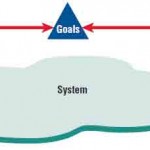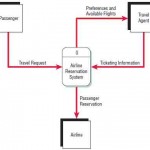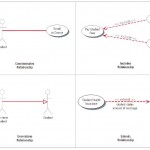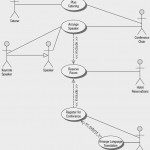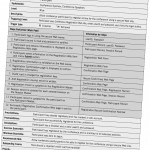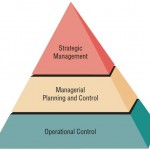To analyze and design appropriate information systems, systems analysts need to comprehend the organizations they work in as systems shaped through the interactions of three main forces: the levels of management, design of organizations, and … [Read more...] about Understanding and Modeling Organizational Systems
Understanding and Modeling Organizational Systems
Organizations as Systems
Organizations and their members are usefully conceptualized as systems designed to accomplish predetermined goals and objectives through people and other resources that they employ. Organizations are composed of smaller, interrelated systems … [Read more...] about Organizations as Systems
Virtual Organizations and Virtual Teams
Not all organizations or parts of organizations are visible in a physical location. Entire organizations or units of organizations can now possess virtual components that permit them to change configurations to adapt to changing project or … [Read more...] about Virtual Organizations and Virtual Teams
Taking a Systems Perspective
Taking a systems perspective allows systems analysts to start broadly clarifying and understanding the various businesses with which they will come into contact. It is important that members of subsystems realize that their work is interrelated. … [Read more...] about Taking a Systems Perspective
Enterprise Systems: Viewing the Organization as a System
Enterprise systems, often referred to as enterprise resource planning (ERP) systems, is a term used to describe an integrated organizational (enterprise) information system. Specifically, ERP is software that helps the flow of information between the … [Read more...] about Enterprise Systems: Viewing the Organization as a System
Systems and the Context-Level Data Flow Diagram
A system or subsystem as it exists within the corporate organization may be graphically depicted in several ways. The various graphical models show the boundaries of the system and the information used in the system.The first model is the … [Read more...] about Systems and the Context-Level Data Flow Diagram
Systems and the Entity-Relationship Model
Another way a systems analyst can show the scope of the system and define proper system boundaries is to use an entity-relationship model. The elements that make up an organizational system can be referred to as entities. An entity may be a person, a … [Read more...] about Systems and the Entity-Relationship Model
Use Case Modeling / Use Case Symbols
Originally introduced as a diagram for use in object-oriented UML, use cases are now being used regardless of the approach to systems development. It can be used as part of the SDLC or in agile modeling. The word use is pronounced as a noun (yoos) … [Read more...] about Use Case Modeling / Use Case Symbols
Use Case Relationships
Active relationships are referred to as behavioral relationships and are used primarily in use case diagrams. There are four basic types of behavioral relationships: communicates, includes, extends, and generalizes. Notice that all these terms are … [Read more...] about Use Case Relationships
Developing Use Case Diagrams & Use Case Scenarios
Developing Use Case DiagramsThe primary use case consists of a standard flow of events in the system that describes a standard system behavior. The primary use case represents the normal, expected, and successful completion of the use … [Read more...] about Developing Use Case Diagrams & Use Case Scenarios
Use Case Levels (Use case Modeling)
You may want to create use cases for different levels. One method (defined by Alistair Cockburn) uses the following altitude metaphors:White is the highest level, like clouds. This is the enterprise level, and there may only be four to five for … [Read more...] about Use Case Levels (Use case Modeling)
Levels of Management
Management in organizations exists on three broad, horizontal levels: operational control, managerial planning and control (middle management), and strategic management, as shown in the figure illustrated below. Each level carries its own … [Read more...] about Levels of Management
Organizational Culture
Organizational culture is an established area of research that has grown remarkably in the last generation. Just as it is appropriate to think of organizations as including many technologies, it is similarly appropriate to see them as hosts to … [Read more...] about Organizational Culture

